
You may have started to see a few leaves on the ground as the seasons start to change, and we love to help our students identify and understand the science that’s all around them. This easy, fall-themed science project will help your students understand the science behind this colorful season.
Did you know? Photosynthesis is a process that occurs in plants that transforms light energy into chemical energy. Pigments, called chlorophyll, in these plants, help them absorb light energy to be converted into chemical energy. Chlorophyll typically appears green. During the fall, the chlorophyll begins to break down and deteriorate in leaves because of the daylight and the change in temperature halting the food-making processes. Now, with less chlorophyll, other pigments are revealed that have been there all along!
This project uses chromatography to understand how green leaves turn many different colors in the fall. Chromatography is a laboratory technique used in chemical analysis to separate the components of a mixture. Using chromatography, we will separate the different colors we find in leaves as they change color in the fall. The alcohol in our mixture will help carry pigments onto a piece of paper (coffee filter) and separate the colors into different bands or strips. More soluble pigments will move further up the band, creating different bands of color!
What You’ll Need:
-
-
- 4-5 glasses/jars (one for each leaf color)
- Bowl
- Spoon
- Isopropyl alcohol (rubbing alcohol)
- Boiling water
- Baking dish
- White coffee filters
- Leaves of different colors
-
What You’ll Do:
Step 1: Gather as many different colored leaves from the ground as possible (including green).
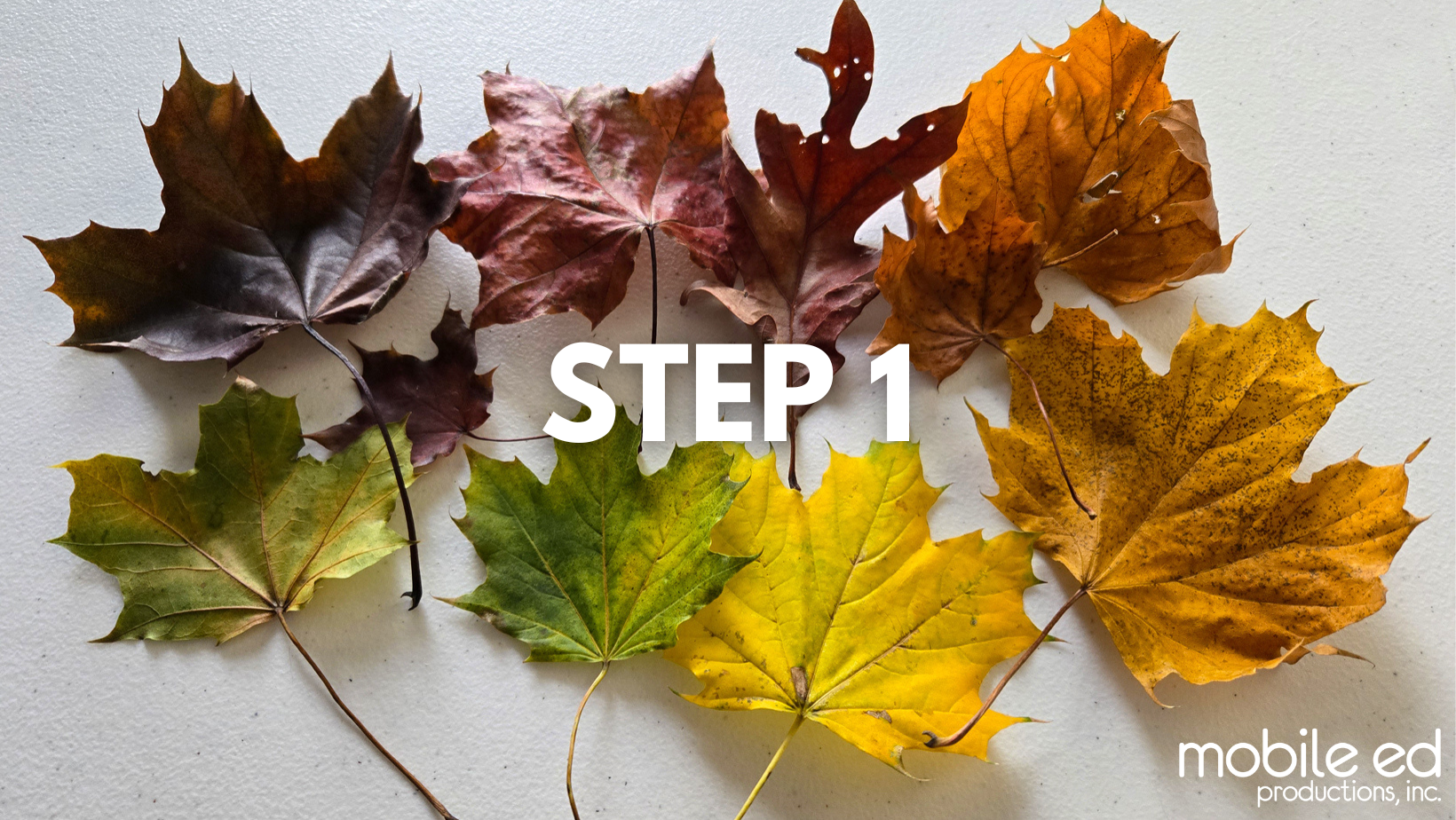
Step 2: Shred the leaves of your first color into small pieces.
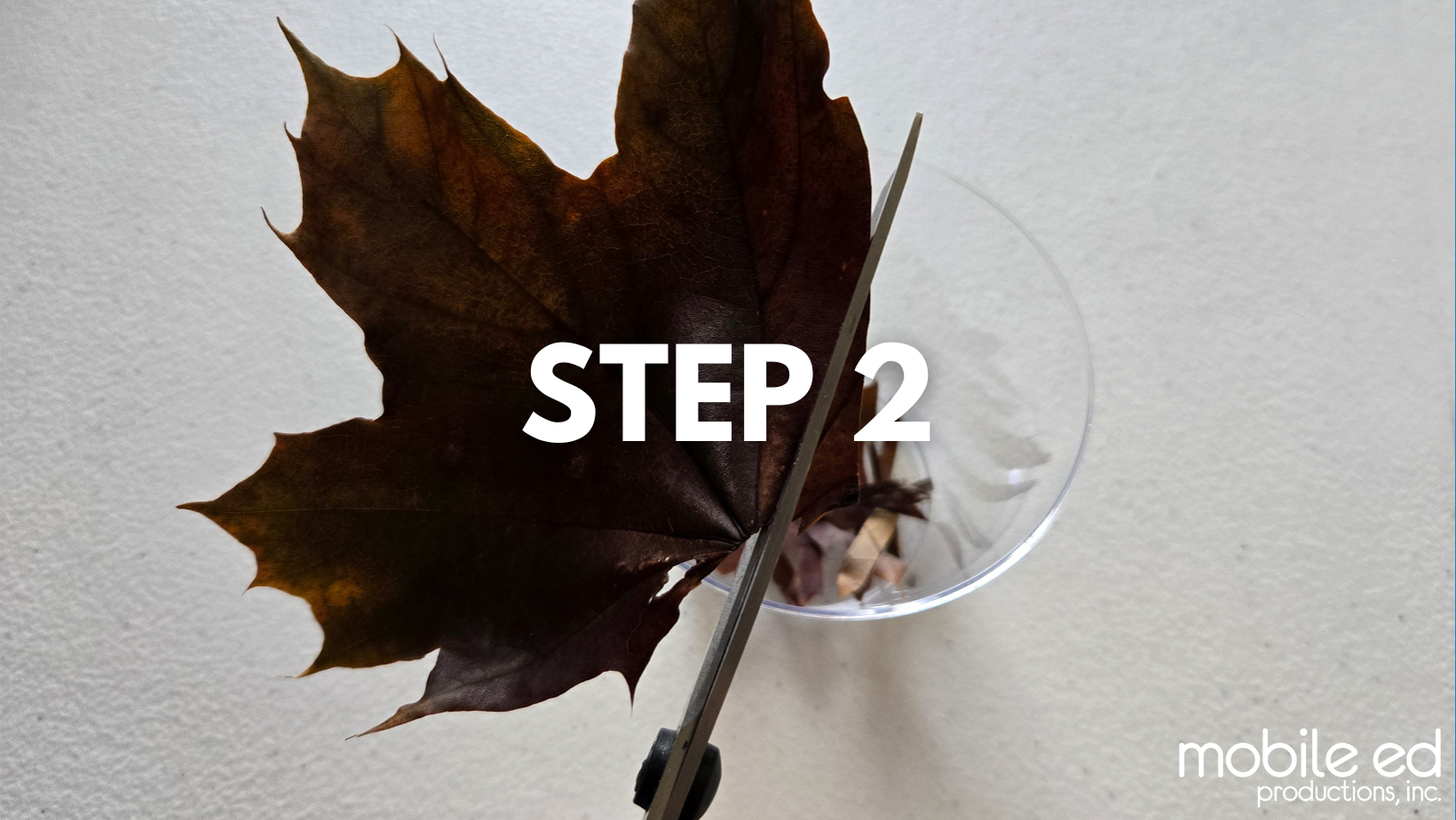
Step 3: Drop the pieces into your bowl or jar and crush them with the back of a spoon to release moisture. Place the crushed leaves into a glass.
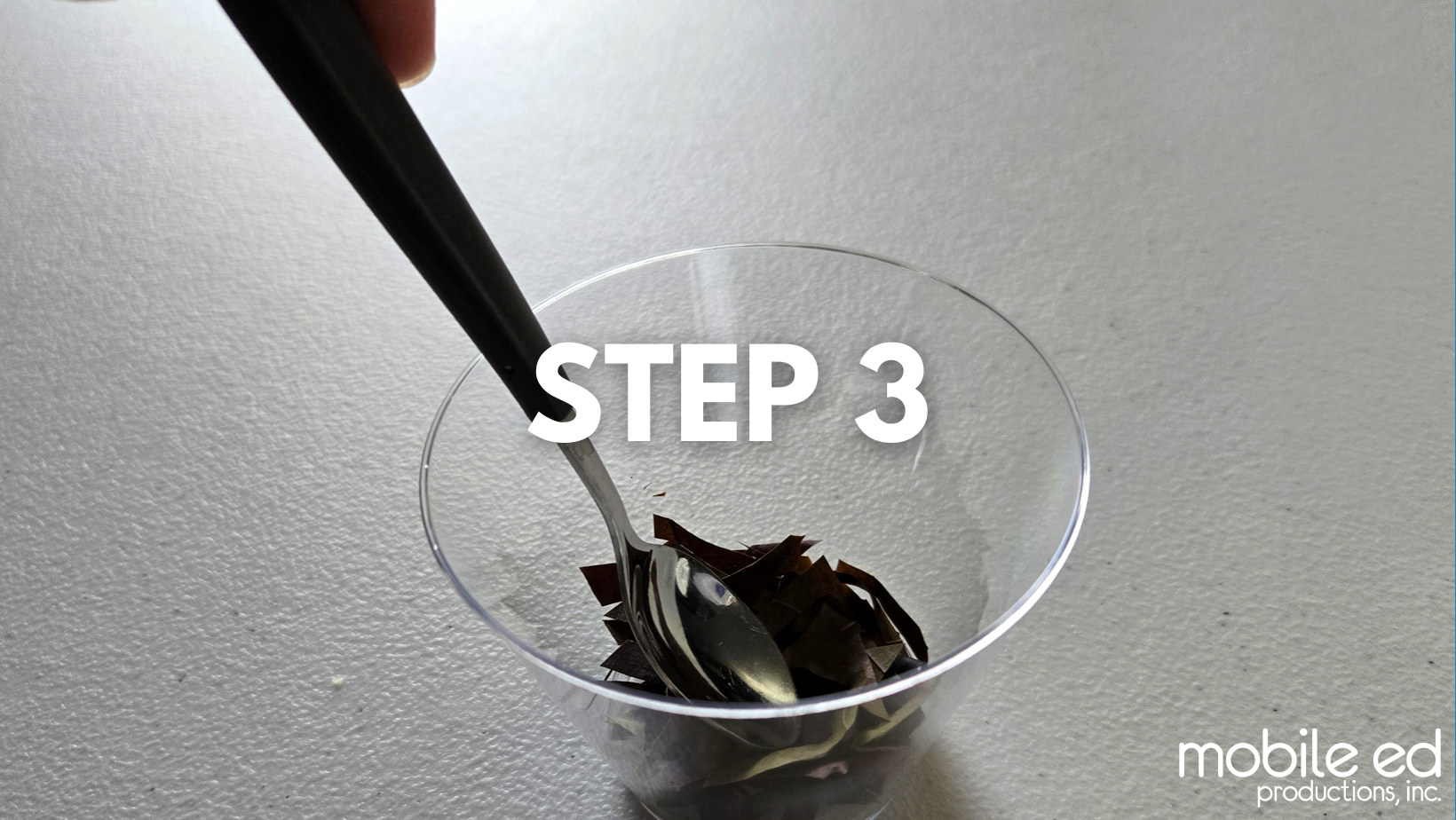
Step 4: Repeat Step 3 with all of your colors, each one in a separate glass. Label each glass with the color of the leaves.
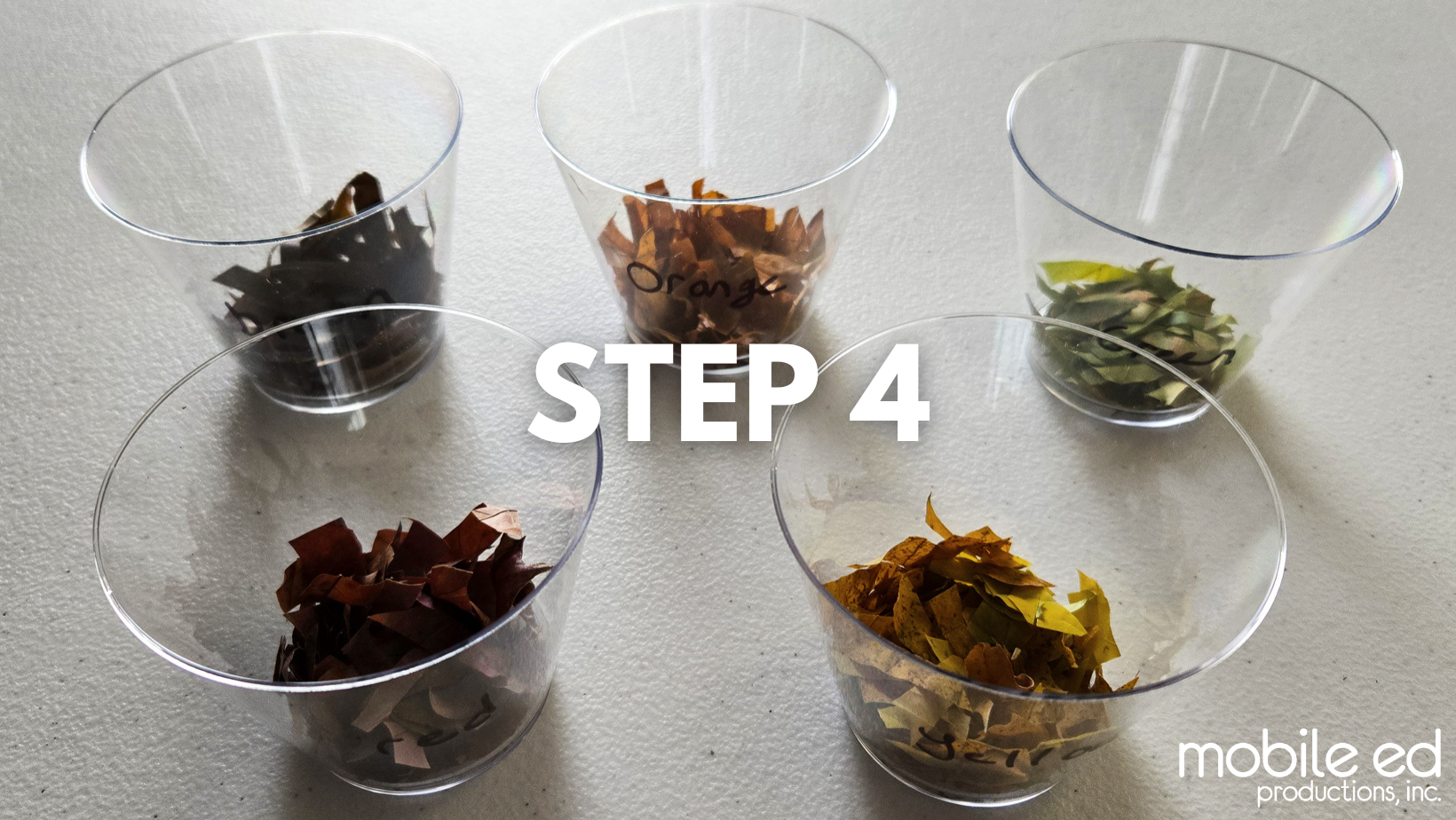
Step 5: Pour isopropyl alcohol into each glass just enough so that the liquid covers the leaves.
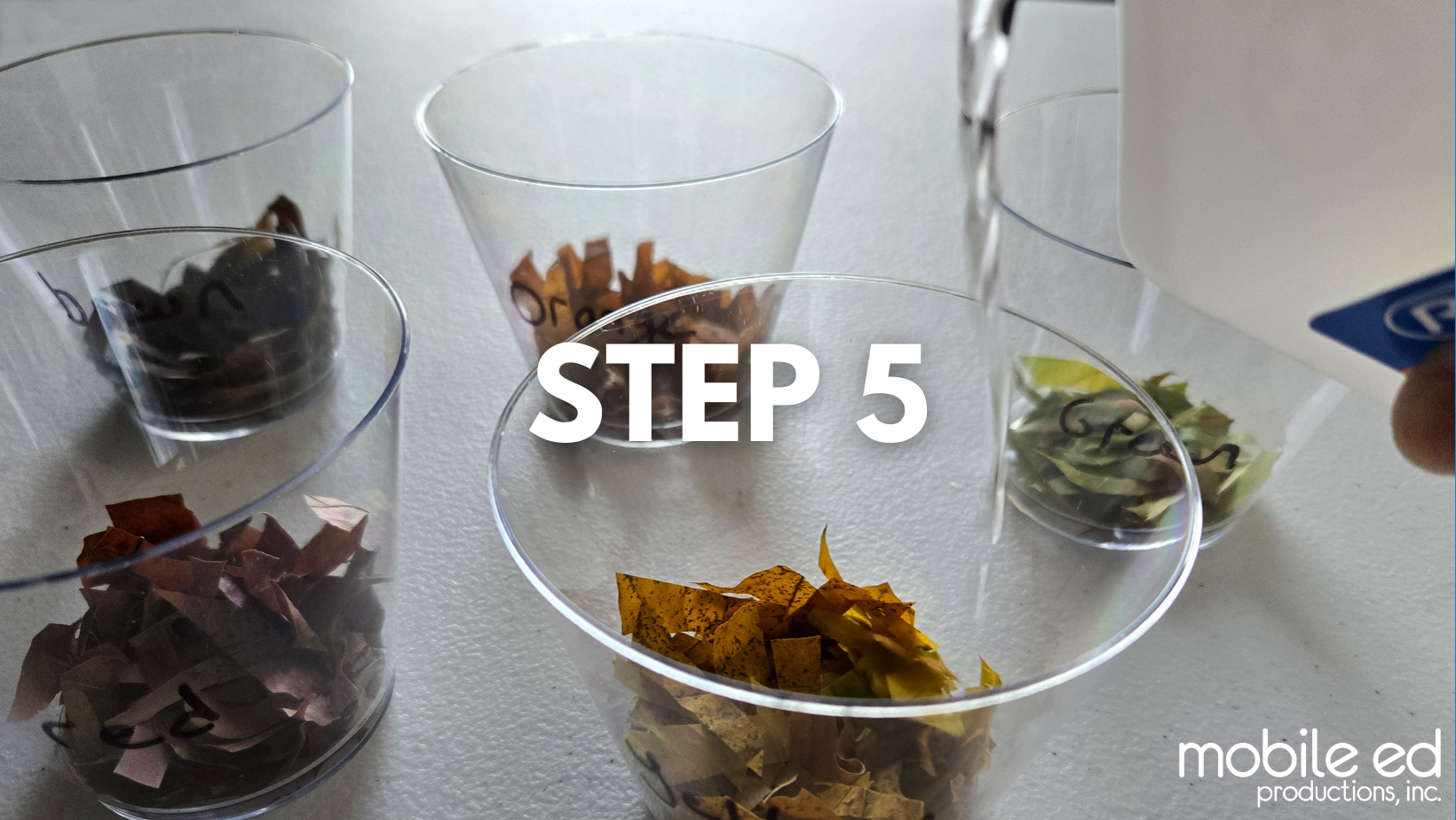
Step 6: Place your glasses into a baking dish and pour hot/boiling water around the glasses (not in them) so that the alcohol in your glasses becomes warm. Wait 30 minutes for the pigments to extract into the alcohol. Warming the alcohol helps the pigments from the leaves extract more quickly. Dump the water once it has cooled.
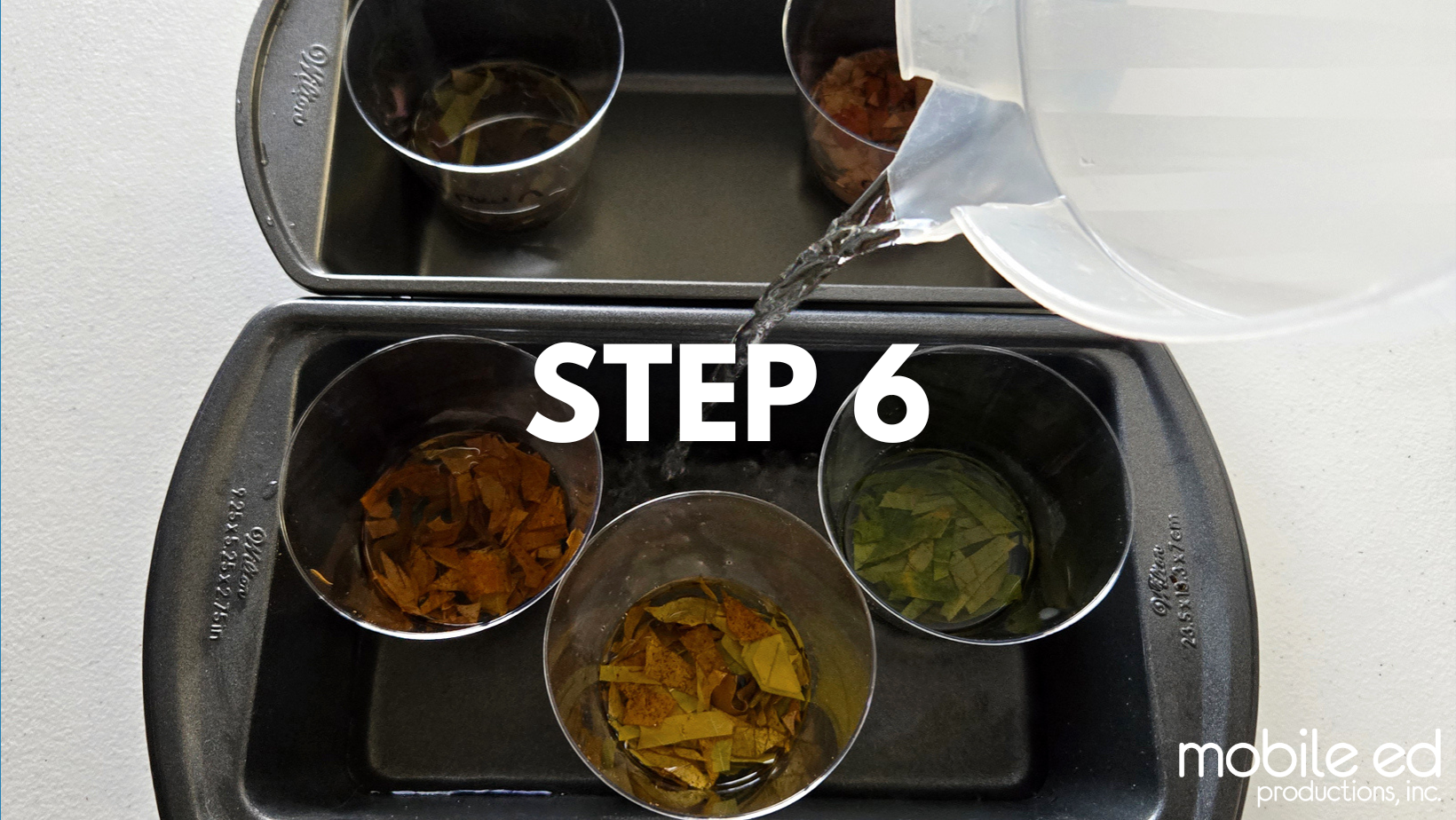
OPTION: Skip adding boiling water by leaving the alcohol in the glasses overnight.
Step 7: Cut out large strips from your coffee filters (about 1in x 5in). Place one end of the strip in the alcohol solution and let the other side hang over the edge.
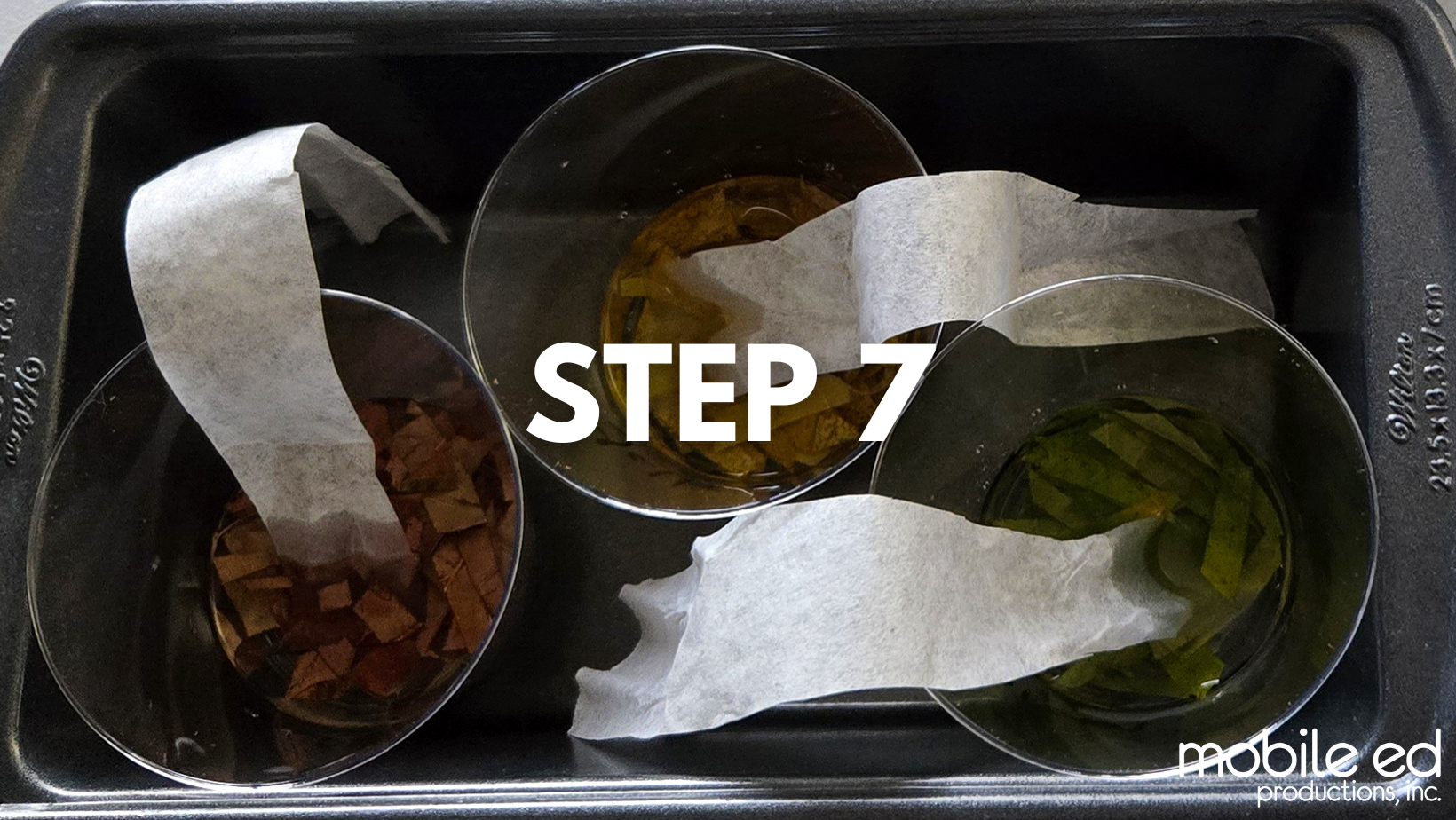
Step 8: Leave the filters in the solutions for 1-2 hours (or overnight) and return to find amazing chromatography!
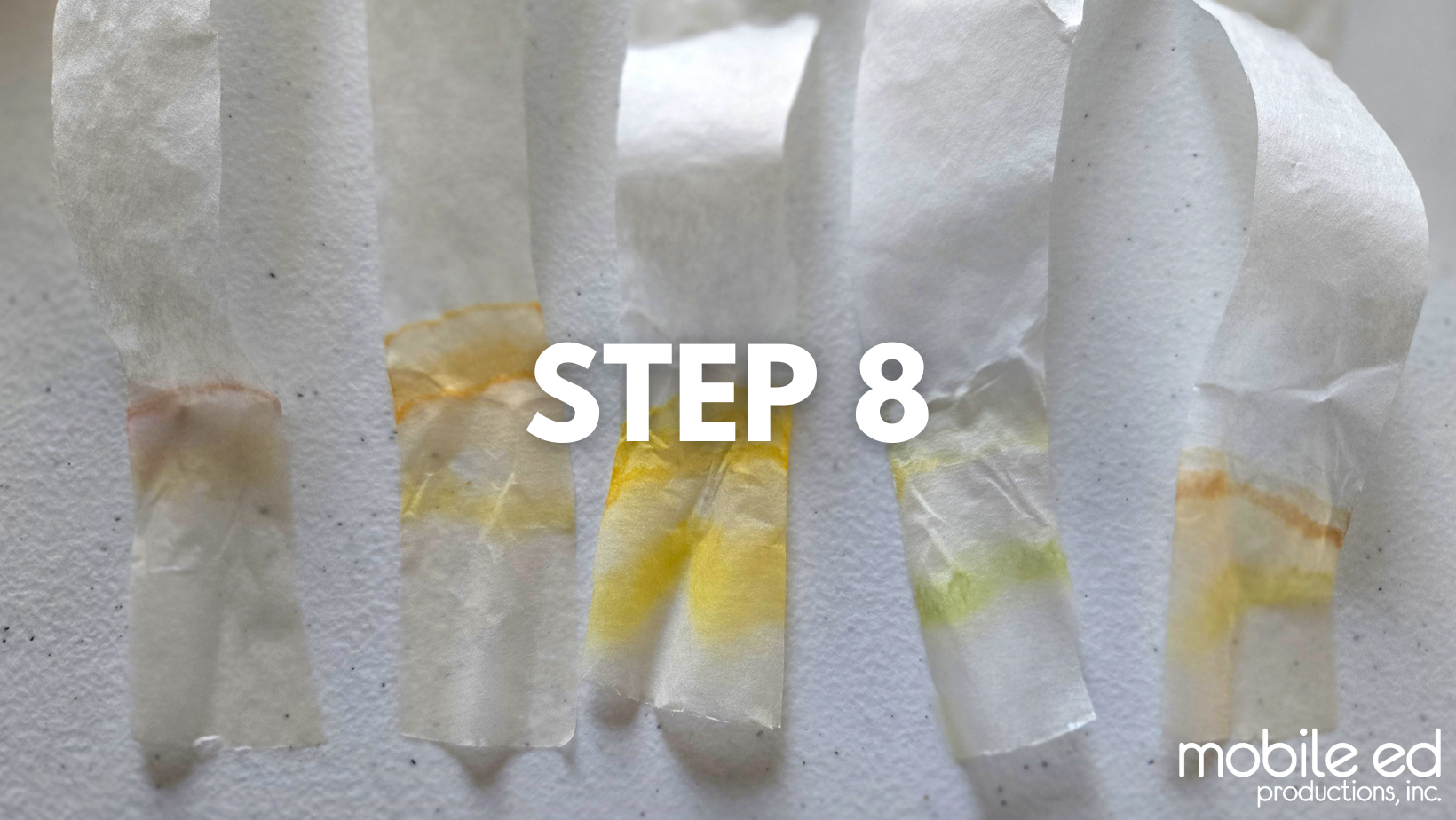
Mobile Ed’s mission is to make education entertaining in a way that reinforces critical lessons, leaves a lasting impact on students for years to follow, and renews students’ passion for learning and teachers’ passion for teaching. We’ve witnessed students develop strong passions and interests in learning and new topics, and become invested in their education through our fun, interactive assembly programs. When students see science happening right under their fingertips or before their eyes, it’s much easier to get excited about new topics, thus facilitating their understanding of them.
Mobile Ed’s tried and true program Magic of Science is by far one of our most popular programs! Many ancient and modern magic tricks rely solely on science and some of the earliest forms of chemistry were even referred to as alchemy and magic! In this program, students better understand the science that exists all around them. Through demonstrations of magnetism, optical illusions, chemical reactions, and more, students witness science in a new and exciting way never seen before! Plus, students even get to learn the science behind the magic!
In this program, students will learn about:
- Magnetism
- Physics
- Optical illusions
- Replicable chemistry experiments
- Math tricks
- How science can look like magic!
Contact our team at info@mobileedproductions.com or give us a call at 800-433-7459 to learn more about our educational programs.
Blog inspired by: Playdough to Plato






